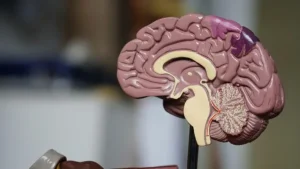
Somatization
What is Somatization?
Somatization refers to distressing and impairing physical symptoms that have no discernable medical cause. Instead, these symptoms are a way of expressing stress, trauma, difficult feelings through the body. Also called psychosomatic, conversion disorder, somatic symptoms, medically unexplained symptoms and functional disorders, somatization is a surprisingly common problem. It occurs in up to 20% of adults, and 10 % to 30% of teens, often at transition points in their lives.

What are the Signs and Symptoms of Somatization?
Physical symptoms of somatization can include: body pain, tremors, headaches, nausea, vomiting, numbness, non-epileptic psychogenic seizures, speech and vision difficulties. These symptoms may appear extreme, and it’s hard to reconcile that their discomfort may actually result from psychological stress and difficulties
In addition, the diagnosis of somatization can create a lot of stress and frustration for patients, since doctors need to perform many tests to rule out other possible causes first. The stress of this process often leads patients to become more worried about their health, and this creates a vicious cycle. However, a clear diagnosis is critical to the healing process, as is ongoing medical oversight.
How Does Somatization Affect Individuals?
Somatization Treatment
To improve the symptoms of somatization, it’s critical to begin with a thorough assessment. That allows both patient and caregivers to understand the narrative of the illness, and validate the severity of the symptoms, which is an important step towards recovery. Education about somatization and its causes is also important. And a successful treatment plan requires collaboration between a patient’s medical and mental health professionals.
One proven treatment for somatization is talk therapy, to understand the symptoms and their triggers, and then learn strategies to manage and lessen impact of the physical symptoms. The therapist will validate a patient’s physical symptoms, but also maintain focus on ways to function and participate in daily activities, despite the pain, exploring ways for the physical symptoms to be less in charge. In addition, it’s very helpful for the patient to resume a regular routine as much as possible. However, the longer symptoms of somatization have presented, the more time it will take to get better.
Hope
Although somatization is a distressing, and even frightening condition, treatment is usually successful, allowing people to fully recover, and resume their normal work, school and social lives.
Learn More
Life is 10 % what happens to you and 90% how you react to it
– Charles R Swindoll
Your Therapy offers strengths-based therapy for individuals, couples, and families, led by experienced Social Workers and Psychotherapists. We collaborate closely to ensure effective, high-quality care.
Your Therapy offers strengths-based therapy for individuals, couples, and families, led by experienced Social Workers, Psychotherapists. We collaborate closely to ensure effective, high-quality care.






